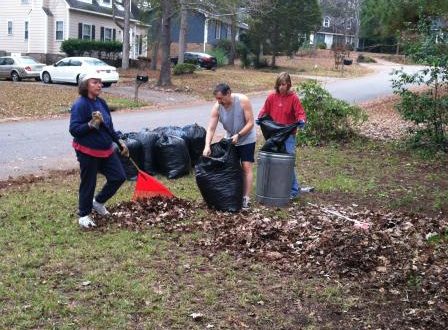Organizations and Abuse: What You Can Do
1. Talk publicly about abuse. Many people know the “I hate divorce” line from Malachi 2:16, but far fewer know the rest of the sentence: “ ‘and him who covers himself and his garment with violence,’ says the LORD of Hosts.” Also, know that abuse involves more than domestic violence. There’s sexual abuse. And verbal abuse. Those enduring the latter often say the verbal injury is worse than physical blows. So talk about verbal abuse, as well. The Bible is full of verses about our speech, but often preachers talk as if gossip is the only sin of the tongue. So publicly condemn abusive speech, physical violence, and sexual violence. Tell victims how your organization is willing to help, and cast a vision for how Jesus Christ can break the chains of slavery for abusers, too.
2. Include women on your leadership team. Even if your church has no women on the pastoral or elder team, God has gifted women with gifts of shepherding. Consider how a female sex abuse victim will feel talking about the abuse with a man or men she does not know. Genesis says man and woman were made to serve side by side. We need both male and female as we shepherd people. So, for example, if your church has an “altar call” or announces that people will be available after the service to talk about spiritual matters, make sure it’s not “men are available” or “you can talk to one of the elders” but “we have men and women available who would love to talk with you….”
3. Show empathy. If someone confides in you about abuse, provide appropriate comfort and care. Don’t blame the victim by asking stuff like, “What did you do to egg on your abuser?” “Did you bait him?” or “What were you wearing when he raped you?” Weep with them. Feel incensed with them. Be a tangible reminder of God’s presence and care. Also nuance talk of forgiving the victimizer with justice for the sin.
4. Document abuse in all its forms. Write up a summary of the conversation, date it, and keep a file. If someone comes to you with bruises, ask permission to take photos. Keep records. Ask if there are witnesses. If so, get their stories in writing and have them sign your summary of what they’ve told you. Save emails and phone messages. Even if you are not a paid professional!
5. Train others about the laws. States vary widely on abuse definitions and practices. For example, in Texas, even allowing abuse to happen is a crime. Find out your state’s laws and what you are required to do. Also, consider partnering with an organization that specializes in training organizational leaders, such as Ministry Safe.
6. Report illegal behavior to appropriate authorities. If someone is harming a child or contributing to a system that harms a child (e.g., using child porn, trafficking, child abuse), you have an obligation to do more than deal with it within your organization alone; you must report the abuse to the proper authorities. If the victim is not a minor, she or he must decide whether to report (e.g., rape, domestic violence). Churches often encourage victims of the latter to refrain from reporting such crimes, especially if the victimizer is a member of the congregation. And especially if the victimizer pleads with, “I’m sorry! I’ll never do it again.” (Often abusers say this after every incident.) The goal is healing. And that means exposing darkness and helping people get help.
7. Be aware of the unique dynamics when there is a power differential. That is, even seemingly consensual relations are abusive when there is a power differential such as a teacher with a student, a doctor with a patient, or a pastor with a parishioner. Many mental-health professionals believe that in such relationships there is no such thing as “consent.” So consider how words such as “affair” (that imply mutual agreement) have no room in our vocabulary for describing such situations.
8. Keep sex offenders supervised and away from kids. And inform other leaders and parents of their presence. Even if a lot of time has past since the last known offense. You want your organization to minister to all sinners. But that does not mean keeping secrets or helping offenders avoid embarrassment. Part of their healing is owning the consequences of their crimes, and you have a greater responsibility to the potentially preyed upon than the preying. A truly repentant person will get why you must do so and should even appreciate the accountability and safeguards.
9. Teach people how to apologize.“I’m sorry you were offended,” or “I’m sorry if my words hurt” is not an apology. “I’m sorry that…” should be followed by, “How can I make reparations?” Like “Pay for your counseling?” “Seek counseling?” “Cover your medical bills for the injury I inflicted?” “Agree to being supervised?”
10. If your organization is not doing these things, ask them to start. Encourage change. And offer to help where you can. If they refuse, pray about finding a place to worship that is fully committed to safety.
Proverbs 31:8–9 says to speak up for those who cannot speak for themselves. Part of doing justice, loving mercy, and walking humbly with our God (Micah 6:8) is standing up for those beat down by abuse. Christians should be known as people who are safe for victims and churches and Christian organizations as hospitals for the violent-tempered and abusing, not shields from consequences that enables them. With God’s help, those of us with influence can work to make our homes and our organizations places where the helpless run for solace and find they are finally safe.
For more on related topics, see my post on when to believe accusersand how the church can do better specifically relating to sexual abuse.



